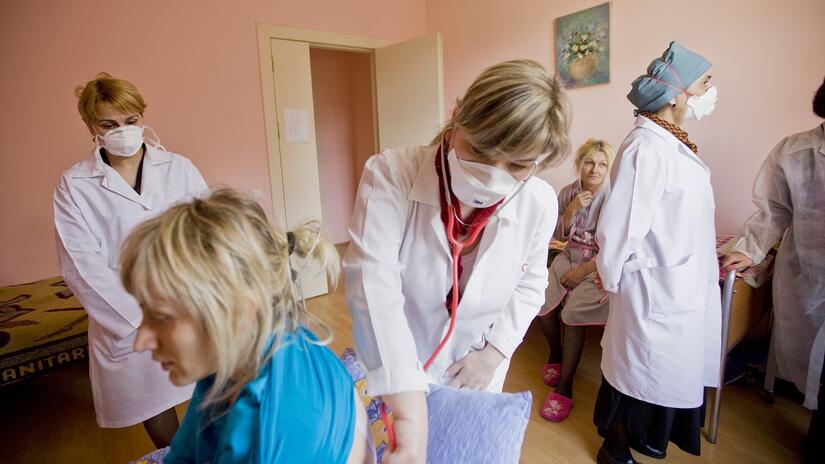Budapest/Geneva, 23 March 2021 – The International Federation of Red Cross and Red Crescent Societies (IFRC) is urging decision-makers to ensure tuberculosis (TB) patients receive life-saving treatment during the COVID-19 pandemic, after new research showing the pandemic has set back TB detection by 12 years.
Research by the Stop TB Partnership shows that during the pandemic, the number of people detected, diagnosed with and treated for TB in the world dropped by approximately one million, falling back to 2008 levels.[1]
In Europe and Central Asia, there was a substantial decrease (35.5 per cent) in TB case notification during the first 6 months of 2020, and a corresponding decline in treatment – a worrying decline that could lead to 5,000 additional TB deaths, according to a WHO survey of 44 European countries.
IFRC Regional Health and Care Coordinator for Europe, Dr Davron Mukhamadiev, said the WHO research was alarming, with half of European countries reallocating TB resources to COVID-19 and 60 per cent of countries having to reduce the number of TB facilities.
“Every year, 1.5 million people worldwide die of TB – almost 4,000 people a day.[2] People with TB are three times more likely to die of COVID-19. We should be increasing TB services, not reducing them.
“There has never been a more critical time to ensure continuity of essential services for people affected by TB. If people are unable to receive uninterrupted treatment, even more lives will be lost,” Dr Mukhamadiev said.
National Red Cross and Red Crescent Societies have continued supporting patients with TB throughout the COVID-19 pandemic. For example, in Kyrgyzstan, the Red Crescent uses its network of nurses to deliver drugs to patients, ensure compliance with the treatment, and provide psychosocial support. In Ukraine, the Red Cross visits long-term child TB patients in hospital, and in Russia the Red Cross visits detention centres, educating detainees, including migrants, about TB prevention.
Kyrgyzstan Red Crescent uses an innovative approach of video-observed therapy for TB, allowing TB patients to take their medications remotely. And in Tajikistan, 100 Red Crescent volunteers provide food and psychosocial support to TB patients.
[1] Stop TB Partnership
[2] World Health Organisation
World Tuberculosis Day: IFRC calls for increased TB detection and treatment amid pandemic

National Centre for TB and Lung Disease, a Global Fund sub-recipient for TB.
